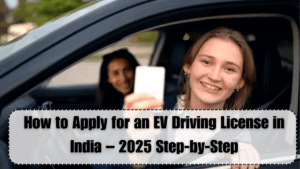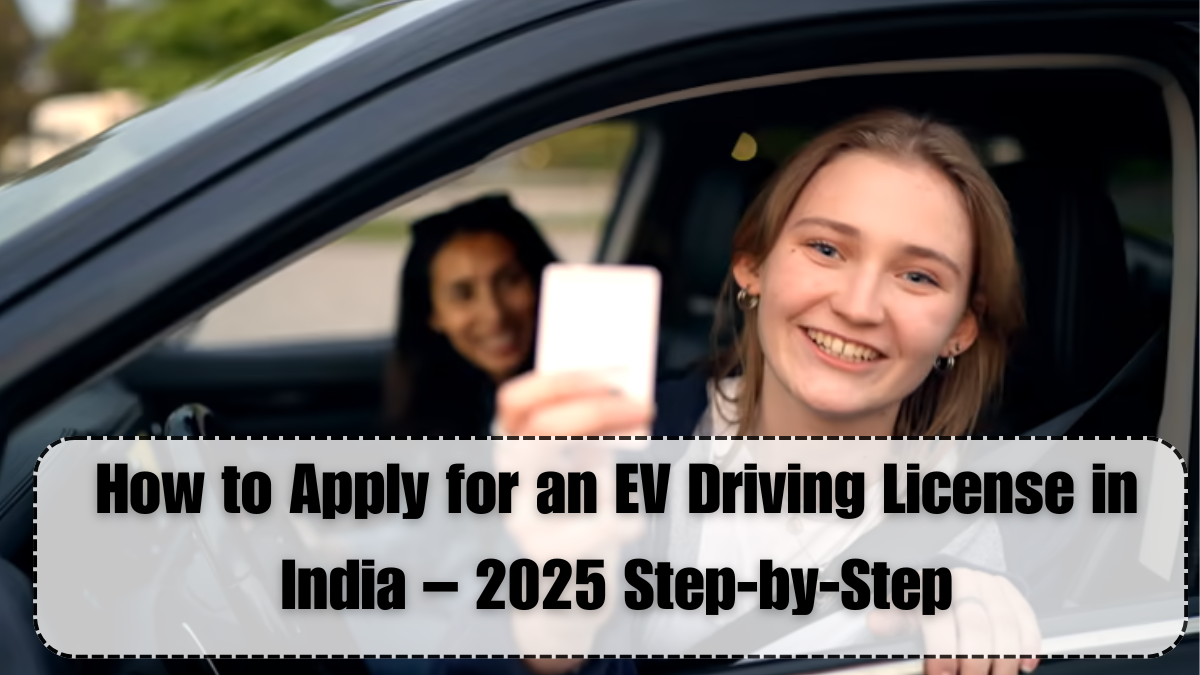As electric vehicles become more common across Indian roads, the licensing process has evolved to include new electric mobility norms. If you’re planning to drive an electric two-wheeler, car, or three-wheeler, you’ll need to complete an EV license application India process that aligns with updated transport rules in 2025.
Thankfully, the Indian government has simplified and digitized the application process, making it more accessible than ever. Whether you’re applying for the first time or transitioning from a conventional license, here’s a comprehensive step-by-step guide to help you legally drive your EV in India.

Step 1: Understand Which License You Need
The first step in your EV license application India process is to know which type of license you need based on the category of your electric vehicle:
-
Electric Scooters / E-Bikes – LMV (Non-Transport)
-
Electric Cars – LMV License
-
E-Autos / E-Rickshaws – Commercial Driving License
While the core license categories remain unchanged, the Road Transport Ministry has introduced dedicated rules for EV license training modules in 2025. You’ll be trained not only in driving but also in battery safety, regenerative braking, and green road conduct.
Step 2: Register on the Parivahan Portal
Applicants can online apply for their driving license through the Ministry of Road Transport’s Parivahan portal. Here’s how:
-
Visit parivahan.gov.in
-
Choose your state from the drop-down
-
Click on “Apply for Driving License”
-
Fill out Form 2 (application form) and upload documents
-
Choose license type: LMV, Two-Wheeler, or Commercial
-
Select a nearby RTO and pay the fees online
This online process streamlines the entire EV license application, reducing the need for multiple physical visits.
Step 3: Upload Required Documents
For a successful EV license application India, you’ll need the following:
-
Aadhaar card (as proof of ID and address)
-
Passport-size photographs
-
Form 1A (Medical Certificate if above 40 or applying for commercial license)
-
Existing learner’s license (if applicable)
-
EV ownership or rental papers (optional but helpful for learner tests)
These documents are required to verify eligibility for your India driving permit and will be checked during the verification process at the RTO.
Step 4: Pass Learner’s Test and Schedule Driving Test
After your application is submitted, the next step is:
-
Learner’s License Test: Conducted online/offline, includes traffic signs, EV license rules, and eco-driving concepts
-
Learner Period: Minimum 30 days before appearing for the driving test
-
Driving Test: Conducted at your local RTO under supervision
In 2025, several states have introduced EV-specific modules during the test, which include:
-
Safe handling of charging cables
-
Understanding of battery levels
-
Smooth acceleration techniques in electric vehicles
Once you pass, your final EV license is issued digitally and sent to your address.
Step 5: License Issuance & Digital Download
Once approved, your permanent driving license is:
-
Sent via post to your registered address
-
Available for online download via DigiLocker or the Parivahan Sarthi app
-
Automatically linked to your vehicle records if you’ve used the same RTO for EV registration
This ensures your India driving credentials are officially recognized for use on all Indian roads.
Summary Table – EV Driving License Application India (2025)
| Step | Action Required |
|---|---|
| Step 1 | Select correct EV license category (LMV, 2W, Commercial) |
| Step 2 | Register and online apply via Parivahan portal |
| Step 3 | Upload ID/address proof, photos, and Form 1A |
| Step 4 | Pass learner test and then EV license driving test |
| Step 5 | Download license or receive via post |
FAQs
Is the EV driving license different from a regular license in India?
No, the license format is the same, but in 2025, the EV license application India process includes eco-driving and EV handling modules during the training.
Can I apply for an EV license online?
Yes, you can online apply for a learner or permanent EV license through the Parivahan portal.
Do I need separate documents for EV registration and license?
No, the same address and ID documents work for both. However, if you already own an EV, sharing its details can strengthen your India driving application.
How long does it take to get the EV license after application?
On average, it takes about 30–45 days to complete the EV license application India process, including tests and verification.
Do I need special training to drive an EV in India?
Yes. In 2025, RTOs have introduced EV license orientation sessions and safety briefings to prepare applicants for battery-powered vehicles.
Click here to know more.
